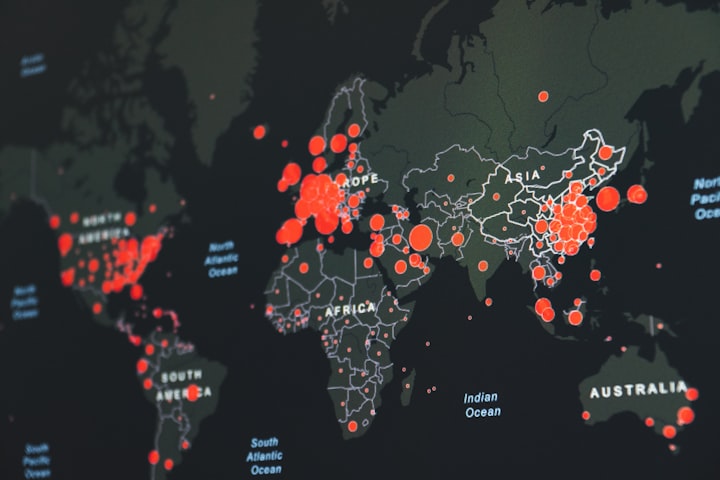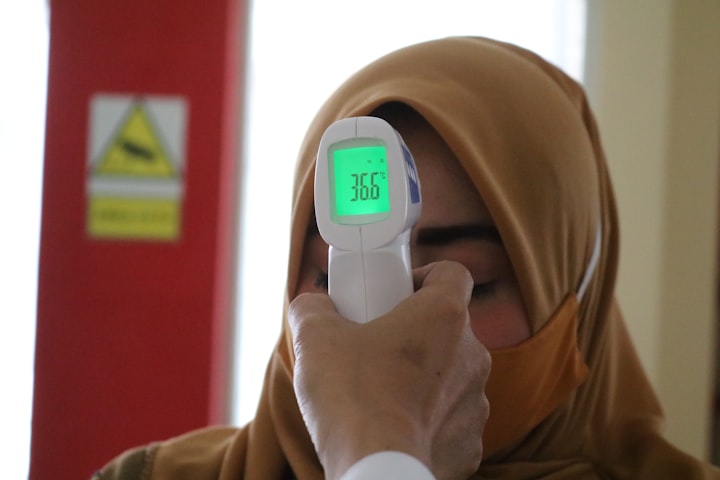How To Protect Yourself From The Coronavirus In Simple Steps.
Simple Protection For Covid-19

The coronavirus is a virus that causes the common cold and a range of other illnesses. Although most people who are infected with coronavirus will only get the common cold, others may develop severe diseases, including bronchitis and pneumonia. Coronavirus can also cause acute respiratory distress syndrome (ARDS), which is a serious illness that fills the lungs with fluid, making it hard to breathe. Most cases of ARDS are caused by bacterial infections or trauma, but coronavirus can also cause ARDS.
In this study, researchers collected blood samples from patients with severe acute respiratory syndrome (SARS) and a related coronavirus called SARS-like coronavirus. They found that the blood of these patients contained a type of immune cell called a natural killer (NK) cell.

1. Introduction
The coronavirus is a new virus spreading around the world. It has been labeled by the World Health Organization as a top-tier threat to global health security.
Coronaviruses are not new. They infect humans, but typically only cause mild upper respiratory tract infections or gastrointestinal illness. These viruses were given their names because they were found in the respiratory tracts of crows.
A number of strains of coronavirus are known to cause SARS (severe acute respiratory syndrome) and MERS (Middle East Respiratory Syndrome). The SARS outbreak happened in 2002 and killed 800 people.

2. The Facts About The Coronavirus
The coronavirus is a virus that can cause severe respiratory illness in humans. It causes the flu, but it’s much more serious than your typical head cold.
Since 2012, the number of reported cases has soared. It’s estimated that about 23% of the global population has been infected with it. The Centers for Disease Control and Prevention (CDC) have declared this virus a threat to public health, and they are working hard to create an effective vaccine.
In this article, you will learn how the coronavirus affects humans, what we know so far about it, and what we don’t know.
You will also learn about the current outbreak in Saudi Arabia and how it compares to previous outbreaks.
Coronavirus is a large family of viruses that infect humans, animals, and plants. The viruses are divided into three groups: coronaviruses, toroviruses, and astrovites. The coronavirus group is further divided into two subgroups: the Alphacoronavirus and Betacoronavirus subgroups.
The Coronaviruses are enveloped viruses with a single-stranded, positive-sense RNA genome. The Betacoronavirus subgroup is further divided into two genogroups: the Avian genogroup and the Human genogroup. The Avian genogroup contains all of the avian coronaviruses (ACoV) and two human coronaviruses, 229E and NL63.

3. Symptoms of the Coronavirus
The coronavirus is a family of viruses that are found in most mammals, including humans. It causes the common cold and SARS, among other illnesses. The symptoms of this virus include fever, coughs, rashes, headaches, and body pain.
For a virus to infect you, it must pass thru your respiratory tract and enter your lungs. The virus can then be spread throughout your body by coughing or sneezing. Antibiotics don’t kill off this virus while it’s in your cells; instead they must reach the inside of the cell to be effective.
The World Health Organization has reported that the recent MERS virus in Saudi Arabia resulted in 64 deaths. The virus started in the Arabian Peninsula but has now spread to South Korea and the UK.
MERS is a coronavirus, an S-shaped strand of RNA surrounded by a protein coat. It belongs to a family of viruses called the Coronaviridae. The Coronaviridae family includes the common cold and can cause viral pneumonia and other infections.
Coronaviruses have been infecting humans for thousands of years, so why are we only hearing about them now?

4. How To Protect Yourself From The Coronavirus In Simple Steps
The coronavirus is a nasty virus that causes the common cold. It’s a serious threat to anyone with a weak immune system or respiratory disease, and it can be deadly. The symptoms of the coronavirus are very similar to those of the common cold: fever, sore throat, runny nose, and sneezing.
The coronavirus is currently out of control. It has killed over 30 people, mostly in the Middle East. If you are concerned about this virus, there are some steps you can take to protect yourself from it. Here's a list of five things you can do to increase your chances of avoiding or surviving the coronavirus.
If you touch your mouth, nose, or eyes, then wash your hands thoroughly with soap and hot water as soon as possible. As a general rule, wash your hands before preparing food and after using the toilet, sneezing, or coughing.

Wash your hands after touching animals, their food, or bedding. If you have a pet, keep it outside the house as much as possible. If you must bring it inside, wash your hands after touching it.

5. Conclusion
In this article, we discussed the coronavirus and provided you with simple steps that you can take to protect yourself from contracting it. We hope these tips have been helpful! If there is anything else we can do for you, please let us know by commenting below.
Following these steps should help you protect yourself from the coronavirus. If it is detected in your area, be sure to take extra caution and avoid public places until the virus has been contained. Comment below with any additional tips that you have found helpful when dealing with the virus.






Comments
There are no comments for this story
Be the first to respond and start the conversation.